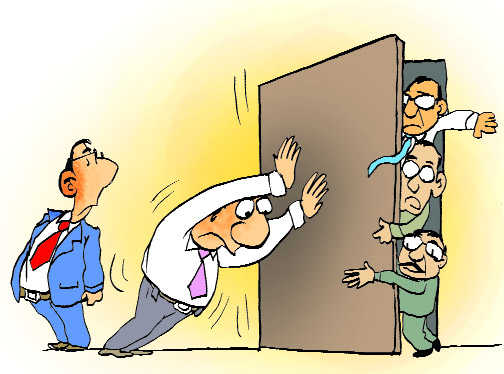Inviting applications for lateral induction may be an effort to improve governance, but it also speaks volumes about the tension between the political masters and the bureaucracy

Ayesha Siddiqa
The Government of India recently invited applications to recruit talented people as lateral entrants at the level of joint secretaries. As per the announcement, the search is for 10 outstanding individuals with expertise in revenue, financial services, economic affairs, agriculture, cooperation and farmers’ welfare, road transport and highways, shipping, environment, forest and climate change, new and renewable energy, civil aviation and commerce. Once selected, these people will be hired on contract for a period of three to five years.While this may be seen as an effort to improve the government machinery, this speaks volumes about the tension between the political masters and the bureaucracy. The system of lateral entry into the service is likely to increase sourness of the relations and may have negative implications for the bureaucracy. This is indeed a system that is used in Pakistan. There are two methods for lateral inductions in Pakistan. The first method is more structural as there is almost a 10 per cent quota for military personnel to get inducted into certain branches of the civil service, such as administrative services and the police. According to this method, the select number of armed forces officers bypasses the civil service examination by only appearing for the interview. A second method is inducting military personnel or politically favoured civilians into the foreign service at ambassadorial positions. The lesson is that while semi-lateral entry at the juniormost level tends to create less problems as the system of joint training tends to develop a sense of camaraderie, the senior-level inductions are extremely problematic. Bureaucrats already serving in the system tend to feel sidelined, thus, discouraged to work or improve their performance. Notwithstanding the lack of independence of Pakistan’s Foreign Office from the politically powerful army, the lateral entries at senior levels add tremendously to hurting the organizational ethos.Unlike Pakistan’s bureaucracy that was systematically weakened by both military and civil governments alike, the Indian bureaucracy grew as a force to reckon with. Indeed, the civil service was the backbone on which the political class depended, resulting in India earning the title of a civil-authoritarian state. Masters of state’s rules and regulation, the bureaucrats have stuck to their power, a situation that a strong political government seems to want to change. The signal that is sent through this advertisement is that the government is willing to bring in new people to shake the system. The South Asian bureaucracy trained in colonial traditions is indeed not a friend of people. It tends to generate power by complicating matters. However, what is required is a broader structural analysis of the system and its overall re-engineering rather than such temporary changes that are ridden with problem. For instance, it is incomprehensible how a joint secretary would navigate the old guard in a period of three to five years. The time it would take even the most talented person to learn the tricks, the contract would be over. The permanent corps feeling insecure would also tend to create problems for these joint secretaries. Moreover, there would be a temptation for politicians to manipulate lateral entrants, adding to existing ailments of bureaucracy. If there is one thing that India could learn from Pakistan is how politicisation of bureaucracy, especially in the administrative services, revenue services and police weakens the state rather than strengthening it. The bureaucracy is the backbone of a state that needs to be handled carefully. The strengthening of regulatory frameworks and increasing level of accountability and transparency need to be considered. The colonial bureaucracy had well-trained men who were dedicated to protect interest of the British Crown. The culture has continued which needs to be changed. The process requires the vision of a genius that may be lacking in the Subcontinent at this juncture. The writer is author of Military Inc and research associate SOAS South Asia Institute
